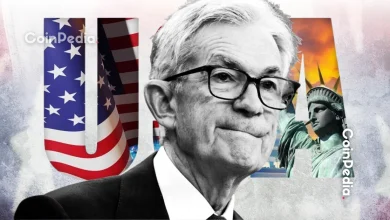
Dubai Embraces Crypto Travel Payments: Emirates and Dubai Duty Free to accept crypto via Crypto.com Pay, transforming travel retail experiences.
Part of Dubai’s 90% Cashless Vision: This move aligns with Dubai’s broader push for financial innovation, aiming to go 90% cashless by 2026.
Dubai, already a top destination for business travelers, is embracing crypto in a big way. In a major move, Emirates Group Chairman Sheikh Ahmed bin Saeed Al Maktoum signed a deal with Crypto.com and Dubai Duty Free, paving the way for travelers to soon pay for flights and duty-free shopping using cryptocurrency. Emirates will integrate Crypto.com Pay for ticket bookings and in-flight services, while Dubai Duty Free plans to accept crypto payments both online and at its stores.
Ramesh Cidambi, COO of Dubai Duty Free (DDF), emphasized how this move aligns with customer expectations and supports Dubai’s vision of becoming a hub for financial innovation. Eric Anziani, President & COO of Crypto.com, noted these integrations will bring real momentum to the digital asset industry by enabling innovative payment solutions.
Part of a Wider Digital Push
This agreement is just one piece of Dubai’s wider digital finance strategy. Earlier this year, Dubai’s Department of Finance signed an MoU with Crypto.com to accept crypto for government service fees, part of its bid to reach a 90% cashless goal by 2026.
Several other sectors have followed suit. Real estate transactions, telecom services, and even fuel purchases at Emarat are now exploring crypto payments, reinforcing the UAE’s reputation for digital-forward financial frameworks.
Moreover, the UAE is aiming to become 90% cashless by 2026, expects an $8 billion economic boost from crypto adoption, and is offering zero-tax zones for Web3 startups. Meanwhile, Dubai’s VARA is also actively licensing major crypto firms, showing a strong commitment to becoming a global crypto hub.
Why This Matters
Dubai Duty Free recorded AED 4.118 billion in sales in the first half of 2025, a 5.3% rise year-over-year. By offering crypto payments, it aims to appeal to tech-savvy, digitally fluent travelers, enhancing convenience and choice. Emirates, a global aviation leader, gains the ability to serve a broader demographic, including younger and international crypto users.
The rollout is still in its planning phase. Feasibility studies and integration trials are underway. Once operational, customers will be able to book flights or shop at the airport using crypto, with payments converted to local currency. Dubai is leveraging partnerships with global players like Crypto.com to push digital payments deeply into its infrastructure, transforming travel retail and flight services into crypto-friendly experiences.
Never Miss a Beat in the Crypto World!
Stay ahead with breaking news, expert analysis, and real-time updates on the latest trends in Bitcoin, altcoins, DeFi, NFTs, and more.
FAQs
Yes, Dubai is one of the world’s most crypto-friendly hubs, with supportive laws, zero-tax zones, and rapid adoption across sectors.
Yes, Dubai Duty Free will accept crypto in-store and online, aligning with the city’s 90% cashless target by 2026.
Trust with CoinPedia:
CoinPedia has been delivering accurate and timely cryptocurrency and blockchain updates since 2017. All content is created by our expert panel of analysts and journalists, following strict Editorial Guidelines based on E-E-A-T (Experience, Expertise, Authoritativeness, Trustworthiness). Every article is fact-checked against reputable sources to ensure accuracy, transparency, and reliability. Our review policy guarantees unbiased evaluations when recommending exchanges, platforms, or tools. We strive to provide timely updates about everything crypto & blockchain, right from startups to industry majors.
Investment Disclaimer:
All opinions and insights shared represent the author's own views on current market conditions. Please do your own research before making investment decisions. Neither the writer nor the publication assumes responsibility for your financial choices.
Sponsored and Advertisements:
Sponsored content and affiliate links may appear on our site. Advertisements are marked clearly, and our editorial content remains entirely independent from our ad partners.








